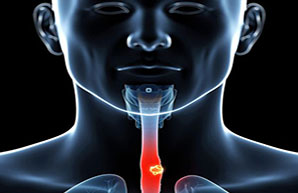Cancer of the oesophagus affects an ever-growing number of South Africans every year. However, despite the increased incidence of the disease, there are still many myths and misconceptions about it. Here are the facts regarding four of these common myths.
Myth 1: Heartburn is simply an uncomfortable inconvenience
Some of us may get heartburn (a symptom of acid reflux) after a heavy night out or an indulgent meal – in fact, it’s a fairly common albeit uncomfortable occurrence. However, if you start getting heartburn more than twice a week, you should see your doctor about it because chronic heartburn is a symptom of gastro-oesophageal reflux disease (GERD or GORD).
Unfortunately this condition is also associated with adenocarcinoma, a type of cancer that affects the lower part of the oesophagus. Don’t freak out though, oesphageal cancer is a rare complication of GERD.
Myth 2: Oesophageal cancer is rare
That it isn’t! According to the Cancer Association of South Africa (CANSA), oesophageal cancer is the sixth most common cancer among men and eight most common among women in South African. It is one of the fastest growing forms of cancer in the developed world, including Sub-Saharan Africa. This rise is largely blamed on the increase in obesity, which is a major cause of GERD.
This puts South Africans especially at risk where more than 61 percent of the population is overweight, obese, or severely obese, according to the South African Medical Research Council. Other risk factors for developing this cancer include smoking, poor diet, and regularly consuming large amounts of alcohol.
Myth 3: You can spot oesophageal cancer symptoms very early
Oesophageal cancer is difficult to detect early on, as there are no standardised screenings for early detection and it doesn’t have obvious symptoms. In addition, symptoms such as heartburn, a nagging cough or a hoarse voice is often associated with something else. It’s also a very aggressive form of cancer and can spread rapidly.
Other symptoms include difficulty swallowing, painful hiccups, and couching up blood. The best way to detect oesophageal cancer early is to know the symptoms, and listen to your body – if something doesn’t feel right, go see a doctor.
Myth 4: Oesophageal cancer mainly affects white males over 50 years old
Yes, men over 50 are at the greatest risk of contracting oesophageal cancer, however, according to CANSA, when both men and women reach their 40s, their risk of contracting oesophageal cancer increases significantly.
In fact, statistics show that black South Africans (men and women) have a higher risk of contracting oesophageal cancer than that of any other ethnic group (men and women, respectively).
For more info on research
http://www.cansa.org.za/files/2015/05/Fact-Sheet-Top-Ten-Cancers-per-Population-Group-May-2015.pdf
http://www.mdpi.com/2072-6694/2/3/1379
http://www.ncbi.nlm.nih.gov/pmc/articles/PMC3345777/
http://www.mrc.ac.za/bod/faqcancer.htm
IMAGE CREDIT: 123rf.com

